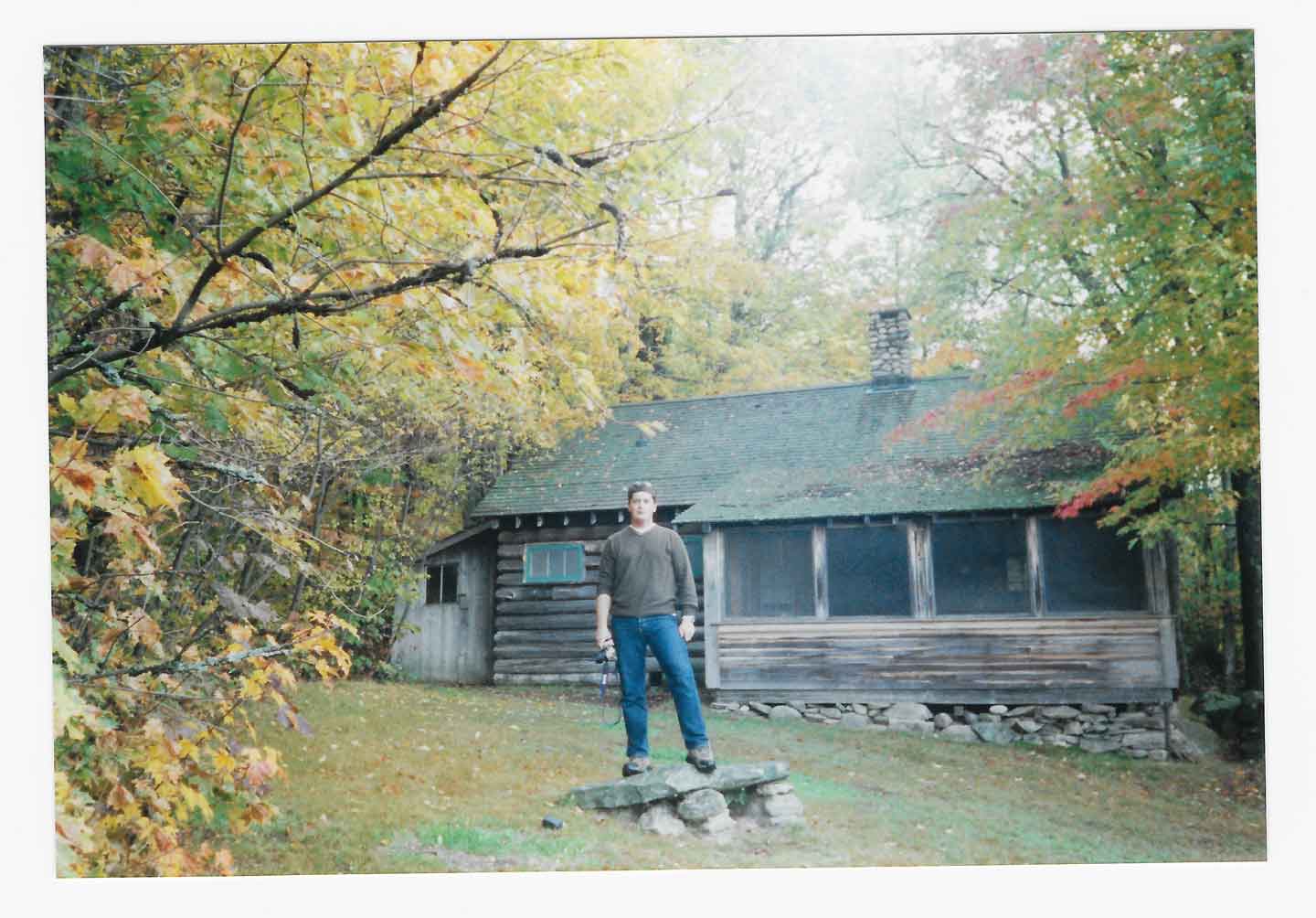The Cabin In The Woods Option
Over the past couple of years a significant minority of people I follow have taken a “cabin in the woods” option, leaving the city for a simpler, more focused creative life.
Long ago and far away, in Vermont’s Green Mountains, not far from where Ben and Jerry started their ice cream factory, buying milk cheaply from local dairy farmers, I made my way to an old wooden cabin, sitting in a clearing near woods. It was where Robert Frost had lived for a while, and in so many ways it exemplified the dream of a creator’s cabin in the woods: simple, stoic.
Although I consider myself a city kid, the idea of a cabin in the woods has always had a romantic appeal. In the past couple of years, though, I’ve noticed more and more creative types in my extended circle – artists, designers, inventors, photographers, writers – opting for the cabin in the woods, giving up the city for a place in the countryside.
That’s OK If You Are Rich
A few weeks back I took this little observation to Twitter, to see what others made of it. Musings like these, and the conversations they often generated, were a part of what once made Twitter so much fun.
I put down my morning coffee (I’ve taken to drinking pour-over rather than espresso since moving to Tokyo) and wrote my Tweet.
The conversation I hoped for didn’t happen. What did appear was a series of comments, ranging from slightly snarky to very snarky, of the “Well, that’s nice if you’re rich” variety.
What surprised me wasn’t the cynicism. That’s par for the course on social media now. My surprise was in seeing people who self-identify as artists and creatives not being able (or willing) to see the context, and assuming this was a conversation about the benefits of being rich, rather than the sacrifices some have chosen to make in order to be more creative or productive.
Especially since the cabin in the woods option has such a rich history to it.
Why Creatives Choose To Move To The Country
Perhaps the most famous example is everyone’s favourite cliche of the struggling artist, Van Gogh, who, unable to sell his work and thus sustain himself, moved to cheaper accommodation in the country. Of course, it was there that he found his creative voice, and honed his style.
But many artists have followed a similar path. Not always because living in the country is cheaper or easier – it often isn’t – but because it can be simpler, especially if you know what you want to do and are highly motivated to do it.
Everything that makes the city a great place to live can also make it a hard place to live. The buzz and energy can also be noise and distraction, big crowds, slow commutes, a high cost of living.
It’s not just people in my circle doing this, there’s a steady stream of stories exploring the trend, like Urban exodus: Why these artist couples left the city for Prince Edward County, Young People Explain Why They Ditched the City for the Country, and Goodbye London: why people are leaving the capital.
Getting Past The Excuses For Changing Your Life
I recall hearing someone say he wanted to simplify his life but first needed to be debt-free and to have two million dollars in the bank. An oddly similar tune to the one sung by my jealousy-inspired Twitter critics!
This is merely a grand exercise in self-deception.
It’s like the former musician I once had coffee with, who, when I asked if he would ever consider making music again, prattled off a long list of prerequisites: would need to be with a band signed to a major label, have the budget to tour globally with a state-of-the-art live show, blah blah blah.
Putting aside the world of excuses for not being creative, and diving into the world of wanting to be creative at all costs, what really is the cabin in the woods option?
What Makes The Cabin In The Woods So Appealing?
I’m not about to take the cabin in the woods option, at least not right now, so why is it so appealing to consider? Part of it is simply the romance of moving as a way to solve our problems. Of course, that in and of itself isn’t really enough to change our life, and deep down, once we look past the idea of waking up to a bucolic country vista, we sense that.
It’s something to do with the radical gesture. I believe it’s that to do it, you have to have a pretty clear sense of what you are about and what you want to achieve. It’s a bold move. A massive decision to simplify life, to prioritise work and love, to focus on fewer and deeper relationships, and to place our creative work above many of the things that are markers for a good “lifestyle” in our consumer society.
And, whether or not we feel personally called to move to a cabin in the woods, we’d all love to have that kind of certainty about where our work and life are going.

This photo was taken on a month-long road trip through New England in 2000. That’s me standing outside Robert Frost’s cabin near Ripton, Vermont. The US was a very different country (I recall watching one of the Bush Jr v Gore presidential debates the week this photo was taken) and I was a very different man. But the cabin in the woods had a pull on my imagination then and it still does, 18 years later.
If you’d like to read a little more about Frost, take a look at this post about his famous poem, The Road Not Taken.




